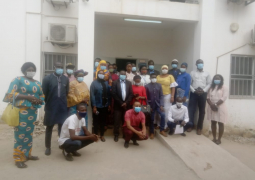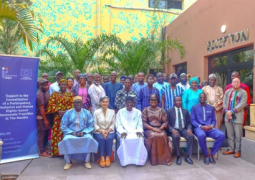
Participants are expected to take part in the training and capacity building exercise as potential trainers by disseminating the knowledge acquired to Fisheries Staff Extension Workers, Official Fish Inspectors, Industry Fish Processors, and Artisanal post-harvest operators including in the handling, processing and preservation and official control along the supply and value chain.
Anna Mbenga Cham, director of Fisheries lamented that fish spoils at a higher rate than any other types of food.
She stated that the spoilage of fish is a result of the function of the environment while adding that, bacteria are especially found on the skin, in the gills and the gastrointestinal tracts of fish.
“In the inland fisheries, although much smaller quantities of fish are produced, similar constraints relating to inadequate awareness and lack of appropriate handling and preservation facilities exist, with similar experiences of post-harvest losses and reduction of benefits,” she explained.
According to the Director, industrial fish processing factories link artisanal fisheries to international markets while stating that at present, a higher proportion of products processed and exported by fish processing establishments are supplied by artisanal fish catches.





